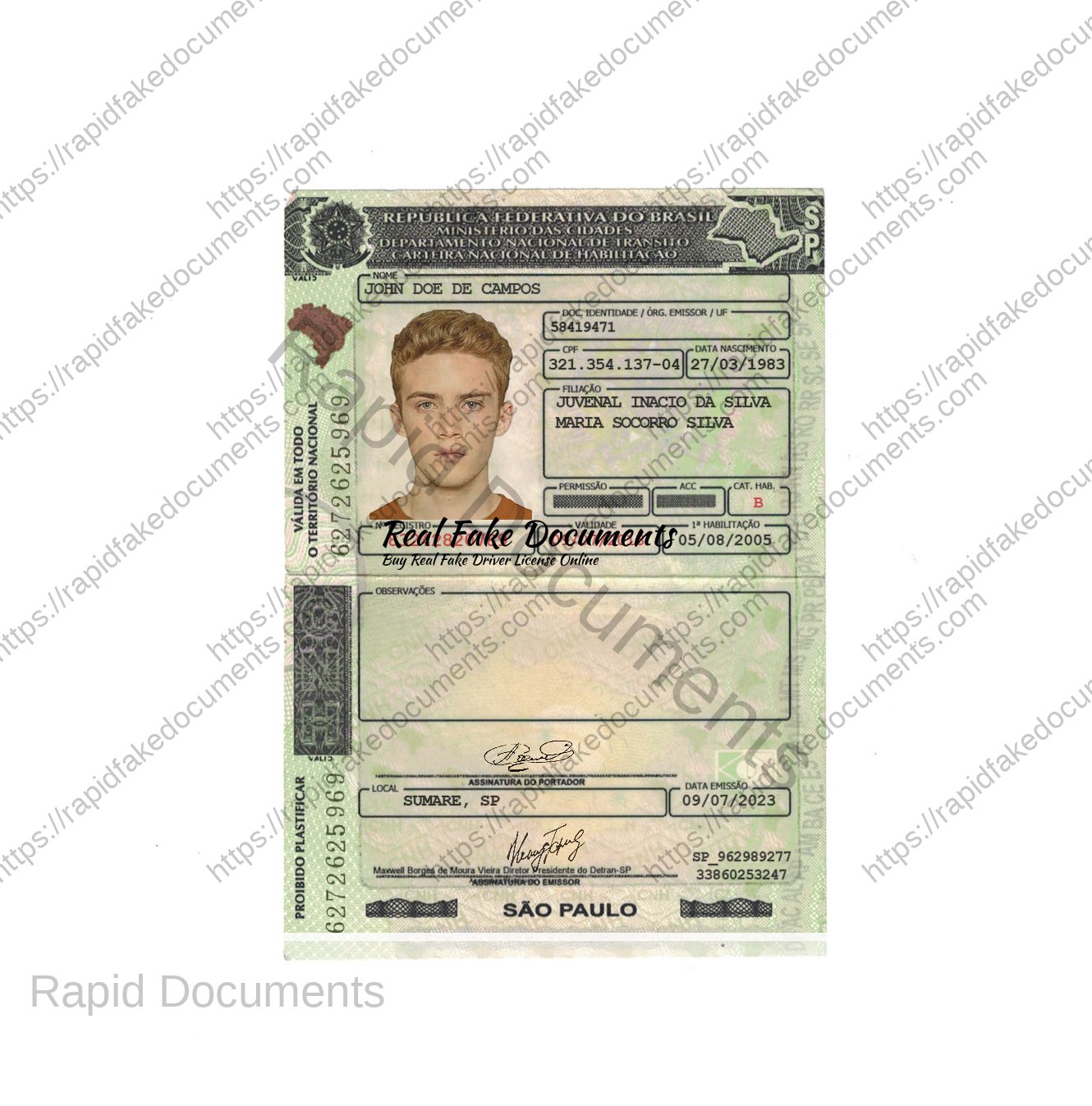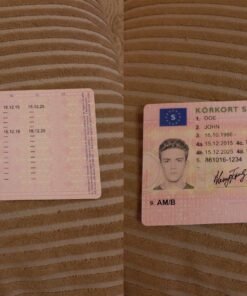Brazil Driving License (CNH) – Complete Guide for Drivers and Expats
The Brazilian driving license, officially called the Carteira Nacional de Habilitação (CNH), is a government-issued document that authorizes individuals to drive motor vehicles in Brazil. It serves as both a driver’s license and a primary form of identification nationwide.
Whether you’re a Brazilian citizen or a foreigner looking to drive legally in Brazil, here’s everything you need to know about obtaining, renewing, and using a Brazil driving license.
What is the CNH?
The CNH is issued by the Departamento Estadual de Trânsito (DETRAN) in each state. It contains:
- Full name and photo
- CPF number
- License number and categories
- Expiry date
- Digital signature and biometric data
- QR code for verification
The CNH is valid across the entire country and accepted internationally in countries that recognize national or international permits.
License Categories in Brazil
Brazilian licenses are classified by the types of vehicles the driver is authorized to operate:
- Category A – Motorcycles
- Category B – Passenger cars (up to 8 seats, max 3.5 tons)
- Category C – Trucks and cargo vehicles over 3.5 tons
- Category D – Passenger vehicles with more than 8 seats (buses, vans)
- Category E – Vehicles with trailers or semi-trailers
You can also have combined licenses (e.g., AB) if you’re qualified for both cars and motorcycles.
Who Can Get a CNH?
You must:
- Be at least 18 years old
- Be literate (able to read and write in Portuguese)
- Have a valid CPF (Brazilian taxpayer ID)
- Pass a medical and psychological evaluation
- Complete an accredited driving course
How to Get a Driving License in Brazil
- Register at DETRAN (state-level traffic department)
- Medical and psychological exams at authorized clinics
- Complete driving school training, which includes:
- 45 hours of classroom theory
- 20 hours of practical driving lessons
- Pass the theory test
- Pass the practical (road) test
- Receive your provisional CNH (Permissão para Dirigir)
The provisional license is valid for 1 year. If no serious violations occur, it is automatically upgraded to the permanent CNH (valid for 10 years if under 50).
Required Documents
- Valid ID or birth certificate
- CPF number
- Proof of residence
- Passport and visa/residency permit (for foreigners)
- Payment receipts for exams and DETRAN fees
Validity and Renewal
- Up to 10 years if you’re under 50
- 5 years for ages 50–69
- 3 years for 70 and older
- Renewal requires a new medical exam and can be done online or at DETRAN offices
Foreigners and Driving in Brazil
Tourists:
- May drive with a foreign driver’s license + International Driving Permit (IDP) for up to 180 days after entry.
Residents:
- Must convert their foreign license to a Brazilian CNH within 180 days.
- Some countries (e.g., Portugal, Spain, Italy) have reciprocity agreements, allowing conversion without exams.
- Others may require theory and/or driving tests.
Documents for conversion:
- Foreign license (original + official translation)
- Valid passport and visa/residence permit
- CPF
- Medical and psychological evaluation results
- DETRAN application form
Digital CNH (CNH Digital)
Brazil offers a digital version of the license via the “Carteira Digital de Trânsito” app. It allows drivers to carry a valid license on their smartphone and provides access to vehicle documents, fines, and recall alerts.
Penalties and Suspension
Brazil uses a point system for traffic violations:
- Points range from 3 to 7 per infraction
- Accumulating 20+ points in 12 months can lead to license suspension
- Drivers must complete a re-education course to recover a suspended license
Conclusion
The Brazil CNH is more than a driving license—it’s a secure and widely accepted ID that integrates with Brazil’s digital services. Whether you’re applying for your first license, converting a foreign one, or renewing, understanding the process can help you stay legal and safe on Brazilian roads.
For more details or to start your application, visit your state’s DETRAN website (e.g., www.detran.sp.gov.br for São Paulo).
Be the first to review “Brazil Driver License” Cancel reply
Related products
Driver Licenses
Driver Licenses
Driver Licenses
Driver Licenses
Driver Licenses
Driver Licenses
Driver Licenses
Driver Licenses












Reviews
There are no reviews yet.